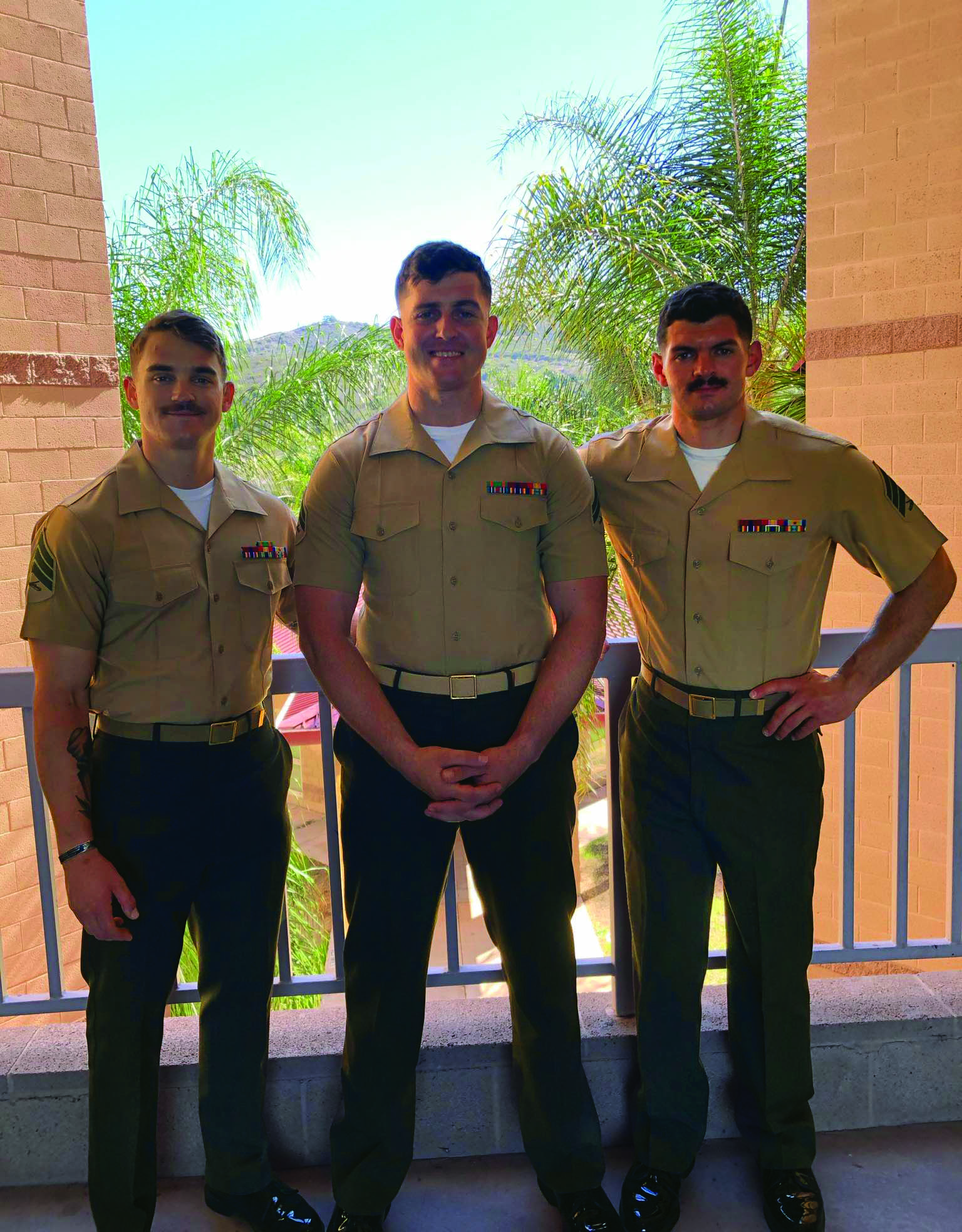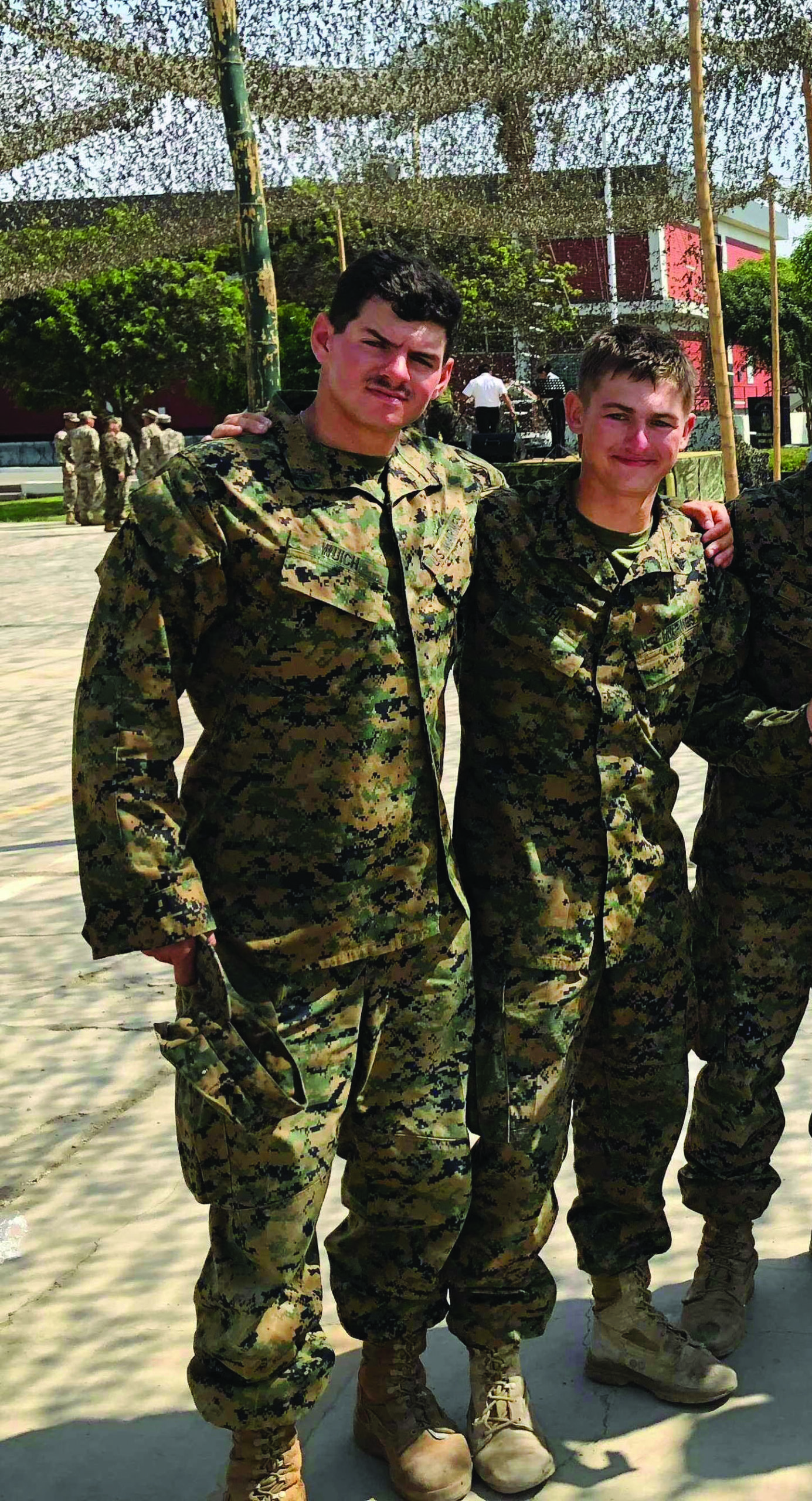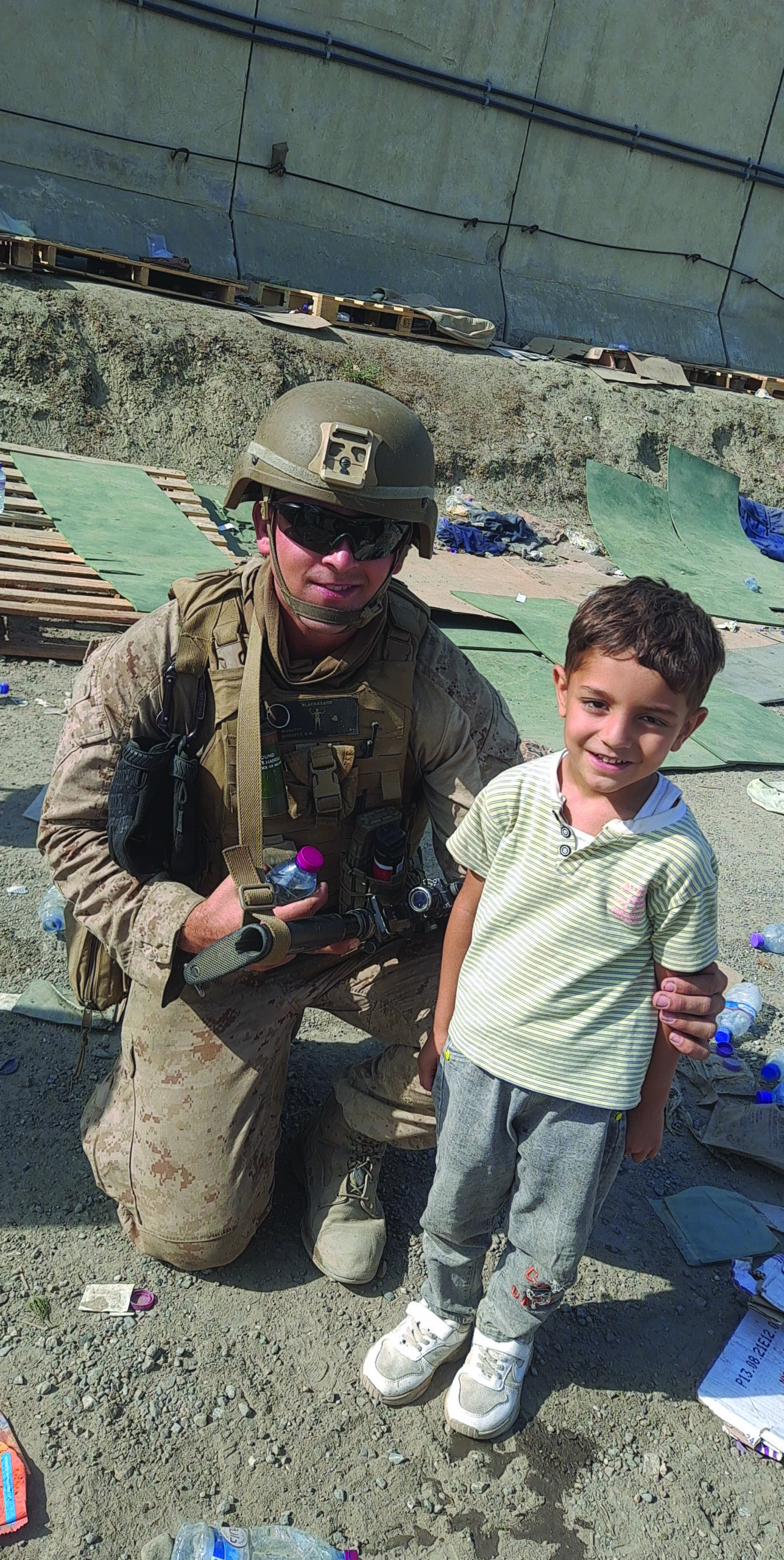
Love and Leadership
By: Cpl Damon GossettPosted on September 15, 2024
Executive Editor’s note: The following article received third place in the 2024 Leatherneck Magazine Writing Contest. The award is provided through an endowment by the Colonel Charles E. Michaels Foundation and is being given in memory of Colonel William E. Barber, USMC, who fought on Iwo Jima during World War II, and was the recipient of the Medal of Honor for his actions at the Battle of Chosin Reservoir during the Korean War. Upcoming issues of Leatherneck will feature honorable mentions entries.
The year is 1918. You are a Marine in the 4th Marine Brigade, sitting in a trench in Belleau Wood, France. You’ve only eaten one piece of bread in the past few days, and your stomach feels like it’s eating you from the inside. You are too tired to bother with the rats scampering across your feet. Sergeant Randall comes to your side, his sunken face and protruding cheekbones a testament to malnourishment. Despite this, he gives you his last piece of bread. He is always doing things like this, always putting you and your comrades before himself.
You try to focus on chewing the bread but cannot escape the smell of your brother Marines rotting in no-man’s-land, their corpses bloated and crawling with maggots. The smell is repulsive. But you are starving, so you eat. You hear a whistle down the line followed by a blood-curdling cry. Another company has been called “over the top” to charge the German positions. The enemy gunfire and artillery commences. The sound is deafening and rattles your bones like thunder. You watch as Marines are cut down in droves. You watch as your brothers are torn apart by a hail of machine-gun fire. You watch as their numbers quickly dwindle and the few left, retreat to the trench. You watch … knowing that soon it will be your turn. You are paralyzed with fear. How can you bring yourself to charge into such a meat grinder? Five times that day your fellow Marines have charged, and five times they have been pushed back.
The German machine-gunners are good. Their interlocking fields of fire create a nearly impenetrable wall of steel. Your mind starts to wander to your mother back home, to her cooking breakfast for you in the kitchen. She made the best biscuits and gravy. Your thoughts are broken by a whistle and a call to go over the top. Your time has come. At first you don’t move, too afraid to face what is surely certain death. Then you see Sgt Randall; first over the top, bayonet fixed, determination on his face. You remember the bread he gave you, how much he cared for you. This gives you a new resolve. If he is going to die this day, you are going to die with him. You climb out of the trench and charge.
What motivates someone to follow their leader “over the top?” In his seminal book “Gates of Fire,” Steven Pressfield introduces us to Dienekes, a Spartan platoon commander. Dienekes is a seemingly fearless leader, but we soon learn that he is not fearless, he merely embraces fear. Dienekes refers to himself as a “student of fear” and asks a question whose answer eludes him: What is the opposite of fear, courage or bravery; recklessness or fearlessness? Finally, on the eve of battle, Dienekes realizes his answer, which is undoubtedly the answer to ours as well. The opposite of fear, and the central component of leadership, is love.
Love takes many different forms. The love you have for your spouse is different from the love you have for your parents. In leadership, love takes the form of a parent-child relationship. In “The Art of War,” Sun Tzu says, “Regard your soldiers as your children, and they will follow you into the deepest valleys. Look on them as your own beloved sons, and they will stand by you even unto death.” Love means you have empathy for them, you put them first, you demonstrate the behavior you want to see in them, and you discipline them.

During my time in the Marine Corps, I saw both the good and the ugly in leadership. The bad leaders did not truly care for me or my comrades; their own image was all that mattered. But the good ones were the guys who willingly got in the trenches with us; the guys who would give us their last piece of bread. One that sticks with me is Sergeant Isaiah Wuich. My platoon was at a range in Twentynine Palms, and my peers and I were tasked with filling sandbags. As we sweated in the brutal desert sun, we looked over and saw our seniors sitting in the shade eating lunch. All except Sgt Wuich. He was filling sandbags with us and in the process filling us with motivation and pride in our leadership. We would have filled sandbags until our hands fell off if he told us to. He exuded the Marine Corps’ principle of “Leaders Eat Last” and demonstrated what a good leader looks like.
Sergeant Wuich trained us vigorously, but he trained with us. He was not the kind of Marine to sit and watch while we ran a drill or did PT; he was always there, keeping pace. Often in the field he would take somebody’s hour of fire watch, so they could get some much-needed sleep. He was a leader every day, not just in certain moments, and was a powerful example for us. Because of his love for us, we would follow him anywhere.
In 2021 I deployed to the Middle East. About two months from the end of our deployment, we were pulled from Kuwait to evacuate masses of civilians from Hamid Karzai International Airport in Kabul, Afghanistan. We were thrilled to be getting a real mission. As we were getting our gear together, though, we were told that Sgt Wuich would not be going. It was a sock in the gut. This was our call “over the top,” and we were leaving one of our best leaders behind.
The evacuation was rough on all of us. Many days were spent doing nothing but kicking people out. Most were women and children whose husbands and fathers had abandoned them to secure their own passage. The same scene played out over and over. We escorted a group of people to the gate where we would stuff them through a tiny hole cut in the chain link fence. As they were going through one by one, the children would beg us to help them. They thought if they could explain to us that they would be killed if they went back out, we would let them stay. We told them we couldn’t help them and sent them back through the fence. We tried to ignore the sound of the gunshots that came after.
After repeating that cycle for days, I was sinking into the abyss. I felt like a monster, and I didn’t know how much longer I could handle it. One of my sergeants noticed. He pulled me aside and helped me focus on how many people we were saving rather than the ones we weren’t. Despite the toll the situation was undoubtedly taking on him, he went out of his way to make sure I was OK. He wasn’t someone I normally looked at as a good leader. He typically led with an iron fist. But he rose to the occasion at the airport.
Which leader is better, the one who lives it daily, but remains untested or the one who rises to the occasion? Leadership during hardship is important. My sergeant in Kabul rose to the occasion and got me through a difficult time. But leadership with love starts in the minutiae of every day.

As a leader, it is your job to prepare your Marines for combat. If you love them, you will train them vigorously. But that is not enough. You must train with them. Too many times you see leaders watching as their junior Marines carry the log or run a gun drill for the 100th time that day. All the while these leaders are yelling at them, degrading them, and, ultimately, losing their respect. Most leaders do that because that is how they were trained. Sgt Wuich taught me another way. He taught me to get under the log with them and to run that gun drill with them. I knew that it wasn’t only their lives on the line, but mine as well. When I was gifted with the opportunity to lead, I took Sgt Wuich’s example with me. I never watched my juniors train, I trained with them. They needed to know that I was willing to do the dirty work with them. I learned their abilities and knew that I could trust them as they knew they could trust me.
While leadership during physical adversity is important, it is equally important on a personal level. A leader must show that they care about their Marines’ well-being. Whether that is a challenge involving the military or a problem at home, everyone is dealing with something. A leader who cares for his Marines will take the time to check on their well-being. My sergeant in Kabul taught me that lesson. He set aside his own struggles to make sure I was taken care of and gave me the ability to carry on. When I became a leader, I strove to create an environment where my juniors knew they could talk to me about problems. I have stayed up with them at night talking through problems they had at home. If one of them wasn’t performing how they normally did, I checked on them. They knew that I cared about them, and they were willing to do anything I asked of them.
Loving those you lead sometimes means doing things that are uncomfortable. I had one Marine who was stellar. He was always at the front of the pack during PT, and he could recite verbatim every bit of knowledge that we taught him. But he was arrogant. He treated his peers as if they were less than him. I had to talk to him about his attitude. I knew he could one day be a great leader if he set aside his ego. It was a difficult conversation, but I cared about him and wanted to see him succeed. He was grateful that I did. He fixed his attitude and became a leader among his peers. Our conversation changed him for the better.
Like Sgt Wuich, I was never afforded the opportunity to go “over the top” with those I led. In some ways I am grateful, because that would have meant some of them would likely die. Some of them may still be called “over the top” in their careers. I can only hope that the training I gave them will keep them alive. But one thing I am confident of is that they knew I loved them. They knew I would give them my last piece of bread, and they were willing to follow me anywhere. I carried on the legacy that was passed to me from Sgt Wuich, and I pray my Marines will continue to carry it. I pray that they will lead with love. Then they will know that when they are called, their Marines will follow. When you are called, will your Marines follow?
Author’s bio: Cpl Damon Gossett, from Hugo, Colo., enlisted in the Marine Corps in August 2019. He deployed with 2/1 in 2021 as a machine-gunner.




